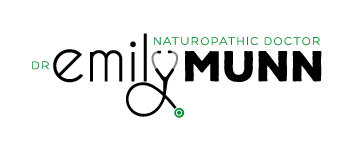Do you have PCOS?
PCOS stands for polycystic ovarian syndrome. It involves the ovaries but is much more complex than just a reproductive disorder. It involves multiple systems and requires a multi-system approach to treating it. You have PCOS when you have symptoms of high androgens (male-type hormones) either showing on blood work or by symptoms such as facial hair growth(1). You also may have irregular menstrual cycles and other causes of these two things have been ruled out(1). PCOS can look very different in different women. There are actually a few subtypes of PCOS leading to slightly different clinical presentations.
Types of PCOS(2):
1) Insulin-resistant or metabolic PCOS is the most common type of PCOS. It is when your blood sugar and insulin are the main factors driving your PCOS.
2) Post-birth control pill PCOS is temporary as a surge of androgens (male-type hormones) occur after stopping high doses of synthetic estrogen and progesterone hormonal birth control. Timing of symptoms such as acne is key in diagnosing this subtype.
3) Inflammatory PCOS causes the ovaries to overproduce testosterone leading to PCOS symptoms. This is the case for most PCOS but there will also be other symptoms of chronic inflammation present like pain.
4) Adrenal PCOS is the least common but usually easily identified when only the hormone DHEA-S is elevated on blood work. It is caused by an abnormal or heightened response to stress. You may be an female athlete for example.
Most women with PCOS fall under more than one subtype of PCOS, yet treatment changes slightly depend on which one is your primary cause. For example, my primary PCOS subtype is adrenal PCOS, but I also have metabolic PCOS symptoms as well. Insulin-resistant or metabolic PCOS is the most common thread among all subtypes of PCOS.
Naturopathic medicine offers many solutions for all types of PCOS. I can’t tell you how many times a patient has told me that the only treatment offered to her for their PCOS symptoms were the birth control pill and metformin. This is not the case! Talk to your local ND who knows what and how to treat PCOS (hint: not all NDs specialize in women’s health!) or contact me to book an appointment. Treating women with PCOS is a passion of mine because I have it too -read My Story.
Resource:
1. Keep It Simple: What Endos Really Need to Know About PCOS -MedScape Article -Mar 29, 2019.
2. Briden, Lara, ND. (2015). Period Repair Manual. San Bernardino, CA.

